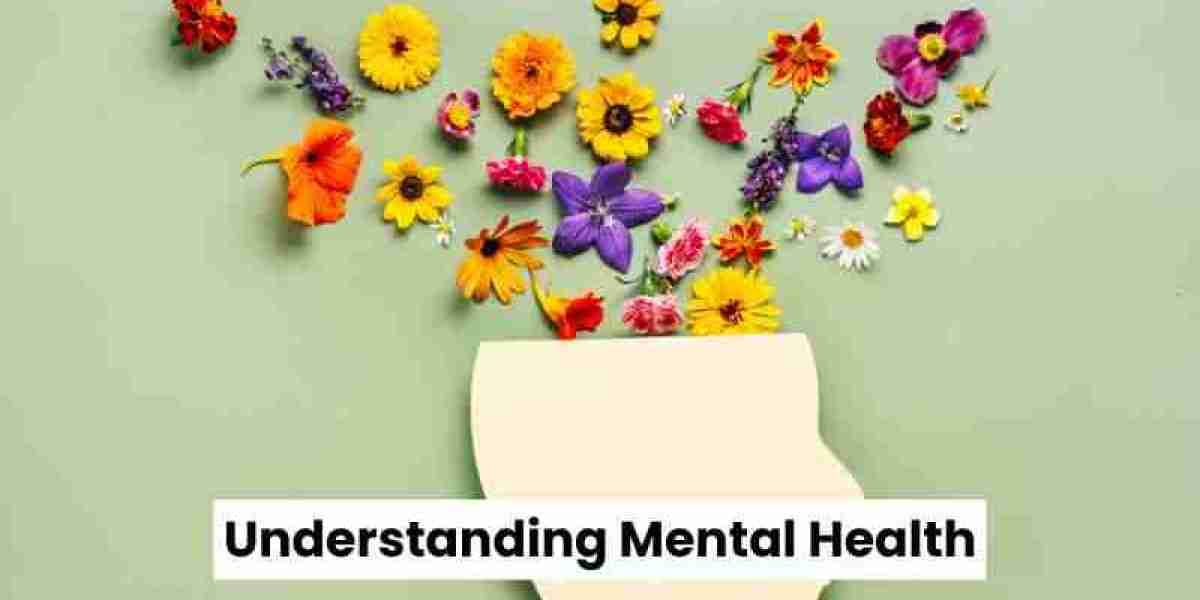Mental health is an essential aspect of our overall well-being, yet it remains a complex and often misunderstood subject. Many people experience conditions like ADHD, Borderline Personality Disorder (BPD), and depression without fully recognizing the signs or symptoms. Understanding mental health is crucial for leading a balanced, fulfilling life. This article dives deep into what is ADHD, what is borderline personality disorder, and what is depression, along with helpful tools such as BPD apps for managing emotions and self-care routines for better mental health. We’ll also explore narcissistic relationships, how to spot the signs of a narcissist, and other vital aspects of mental health. By the end of this guide, you'll be better equipped to recognize and manage these conditions for yourself or loved ones.
What is ADHD?
ADHD, or Attention-Deficit/Hyperactivity Disorder, is a neurodevelopmental disorder that affects millions of people, both children and adults. It is characterized by symptoms such as inattention, hyperactivity, and impulsivity. These behaviors can hinder performance in various areas of life, including work, school, and social settings.
In adults, ADHD may look different from childhood manifestations, with individuals often struggling with time management, forgetfulness, and difficulty concentrating. This can lead to a cycle of frustration and low self-esteem. Understanding the signs early can help in managing and mitigating its impacts.
Key Symptoms of ADHD:
- Difficulty focusing or staying on task
- Restlessness or constant movement
- Frequent impulsive decisions
- Trouble organizing tasks and activities
- Forgetfulness and losing items frequently
What is Borderline Personality Disorder?
Borderline Personality Disorder (BPD) is a mental health condition characterized by intense emotional instability, an unstable self-image, and difficulty maintaining relationships. People with BPD often experience swift mood swings and fear of abandonment, leading to impulsive actions that can harm their personal and professional lives.
BPD can be highly disruptive, but with appropriate treatment, individuals can lead stable and fulfilling lives. Therapy, medication, and self-help strategies, including using BPD apps for managing emotions, play a critical role in helping individuals cope with the disorder.
Common Symptoms of BPD:
- Intense and unstable relationships
- Emotional volatility
- Fear of abandonment
- Impulsive behaviors
- Self-destructive tendencies, such as substance abuse or self-harm
How to Recognize the Signs and Symptoms of Different Mental Health Conditions
Mental health disorders come in many forms, and each has its own unique signs and symptoms. Being able to recognize these early on can make a significant difference in getting timely help. Here’s a breakdown of common conditions:
Mental Health Condition | Key Signs and Symptoms |
ADHD | Inattention, hyperactivity, impulsivity |
Depression | Persistent sadness, loss of interest, fatigue |
Anxiety | Excessive worry, restlessness, physical tension |
BPD | Emotional instability, fear of abandonment |
OCD | Intrusive thoughts, repetitive behaviors |
It’s important to note that symptoms may vary from person to person. Regular mental health screenings and self-awareness are key to early detection.
What is Depression?
Depression is one of the most common mental health disorders worldwide. It is characterized by persistent feelings of sadness, hopelessness, and a lack of interest in daily activities. Unlike normal mood fluctuations, depression can last for weeks, months, or even years, significantly impacting one’s quality of life.
Symptoms of depression are more than just feeling down temporarily. They include:
- Chronic fatigue and lack of energy
- Difficulty concentrating
- Changes in appetite or weight
- Feelings of worthlessness or guilt
- Suicidal thoughts or actions in severe cases
Recognizing these signs and seeking help is crucial, as depression is treatable with therapy, medication, and lifestyle changes.
BPD Apps for Managing Emotions
With the advancement of technology, many BPD apps for managing emotions have emerged, offering individuals tools to cope with their intense emotional experiences. These apps often provide mood trackers, breathing exercises, and mindfulness techniques that can be highly beneficial for those dealing with borderline personality disorder.
Popular BPD apps include:
- DBT Diary Card and Skills Coach: Helps users track their emotions and teaches Dialectical Behavior Therapy (DBT) skills.
- Calm Harm: Designed to help manage urges to self-harm, providing alternatives and distraction techniques.
- MindShift CBT: A cognitive behavioral therapy (CBT) app that helps manage anxiety and intense emotions.
Self-care Routines for Better Mental Health
Self-care is essential for maintaining good mental health. It includes activities and habits that nurture your physical, emotional, and psychological well-being. Developing self-care routines for better mental health can help reduce stress, improve mood, and build resilience.
Self-Care Tips:
- Exercise regularly: Physical activity boosts endorphins, which improve mood.
- Practice mindfulness: Activities like meditation and deep breathing can help center your mind.
- Set healthy boundaries: Learn to say no and prioritize your needs.
- Engage in hobbies: Doing something you love can be a great emotional outlet.
Incorporating these routines into your daily life can significantly improve your mental health and overall well-being.
Narcissistic Relationships
Narcissistic relationships can be highly damaging, both emotionally and mentally. In these relationships, one partner often displays extreme self-centeredness, a lack of empathy, and manipulative behaviors. People in such relationships may feel constantly invalidated or controlled.
Understanding the traits of a narcissist can help you avoid or manage toxic dynamics. Narcissists often:
- Demand constant attention and admiration
- Show little regard for others' feelings
- Manipulate others for personal gain
- Display a sense of entitlement
How to Spot the Signs of a Narcissist
It can be challenging to identify a narcissist early in a relationship, as they often display charm and charisma. However, over time, patterns of manipulation, lack of empathy, and self-absorption become apparent.
Here are some signs of a narcissist:
- They constantly seek validation and admiration.
- They struggle to maintain long-term relationships.
- They are highly manipulative and controlling.
- They refuse to take responsibility for their actions and often blame others.
If you notice these signs, it's essential to set boundaries and consider seeking help, as narcissistic relationships can lead to emotional distress and even trauma.
Read More:
https://mixedworldview.com/how-to-spot-the-signs-of-a-narcissist/
https://mixedworldview.com/narcissistic-relationships-may-be-more-dangerous-than-you-think/
https://mixedworldview.com/what-does-adhd-look-like-in-adults/
https://mixedworldview.com/do-i-have-adhd-or-am-i-just-lazy/
https://mixedworldview.com/adhd-symptoms-what-to-look-for/
https://mixedworldview.com/20-daily-self-care-routine-ideas-for-better-mental-health/
Frequently Asked Questions (FAQs)
- What is ADHD?
ADHD is a neurodevelopmental disorder characterized by symptoms like inattention, hyperactivity, and impulsivity. It affects both children and adults, often leading to challenges in work and social settings. - What is borderline personality disorder?
Borderline Personality Disorder (BPD) is a mental health condition marked by emotional instability, impulsive behavior, and difficulty maintaining relationships. - How do I recognize the signs of depression?
Common signs of depression include persistent sadness, lack of interest in activities, changes in sleep and appetite, and feelings of worthlessness. - Can self-care routines improve mental health?
Yes, practicing self-care routines such as exercise, mindfulness, and setting boundaries can significantly improve mental health and overall well-being. - Are there apps for managing BPD emotions?
Yes, apps like Calm Harm and DBT Diary Card offer helpful tools for managing the intense emotions associated with Borderline Personality Disorder. - How can I spot a narcissist in a relationship?
Look for signs like manipulative behavior, a lack of empathy, and a constant need for validation. Narcissists often prioritize their own needs over those of others. - What is depression, and how does it differ from normal sadness?
Depression is a chronic mental health disorder that lasts longer than normal sadness and significantly affects daily life, including work, relationships, and self-worth. - How can I manage my emotions with BPD?
Using BPD apps, therapy, and mindfulness techniques can help manage the intense emotions associated with the disorder.
By understanding what is ADHD, what is borderline personality disorder, and what is depression, along with other mental health conditions, you can take the necessary steps to recognize the signs, seek help, and practice self-care routines for better mental health.



